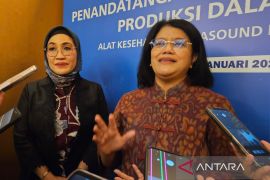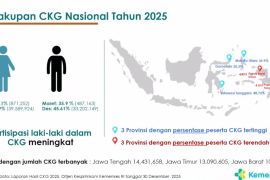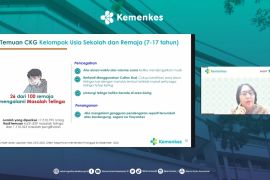"For now, the Indonesian Health Survey is updated every five years for the National Medium-Term Development Plan (RPJMN) so that the most accurate approach information can be fulfilled," he said here Tuesday.
The 2023 SKI is a follow-up to the Basic Health Research (Riskesdas) in 2007, 2013, and 2018, which covered all Indonesian regions, Harbuwono explained.
Data obtained from the program will determine the government policies that will be regulated through the RPJMN.
Providing an example, he said that if the survey links high cholesterol levels as the cause of heart disease in Aceh province, the approach of cholesterol treatment and evaluation will be carried out specifically in the province.
The same thing would apply to reports of diabetes cases. The survey has shown that there are two factors behind diabetes, namely genetic and environmental.
The deputy minister noted that genetic factors in diabetes patients are unavoidable because population growth rates are increasing and diabetes occurs due to the marriage of persons that carry the diabetes gene.
Nevertheless, non-genetic or environmental factors, such as lifestyle and behavior, have also become a consideration in the approach adopted for diabetes patients, he added.
"We have carried out interventions on several things (diseases) that are increasing, such as diabetes. Maybe the figure would have been even higher if we did not carry out interventions," he said.
He expressed the hope that the Technical Coordination Meeting for the 2023 SKI, which was held at the Health Ministry's headquarters in Jakarta on Tuesday, would present a specific parameter that can be added to the survey to strengthen national data.
Related news: Ministry gathers inputs from youngsters on controlling GGL consumption
Related news: Tangerang's TB, diabetes screening service targets 38,000 residents
Translator: Andi Firdaus, Raka Adji
Editor: Rahmad Nasution
Copyright © ANTARA 2023












